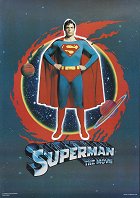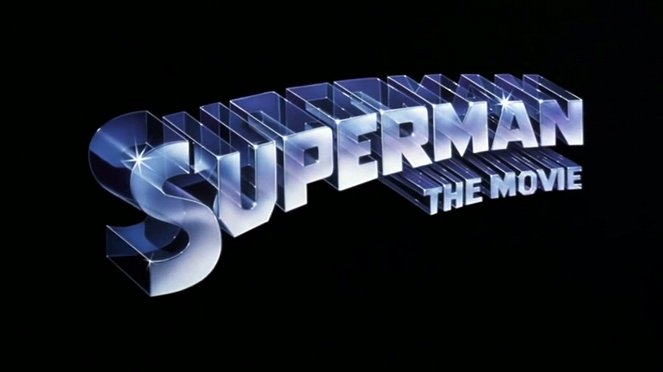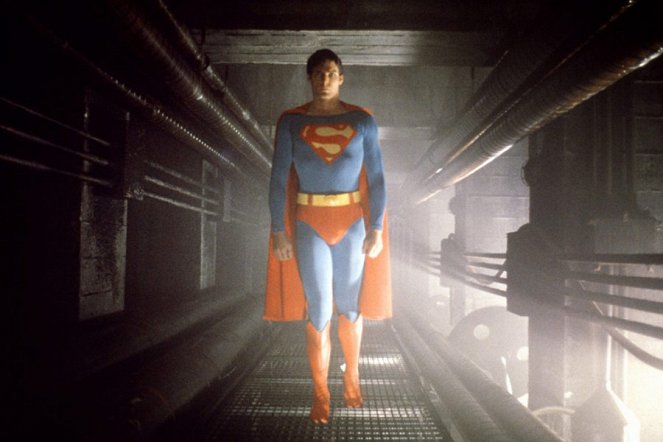Regie:
Richard DonnerCamera:
Geoffrey UnsworthMuziek:
John WilliamsActeurs:
Christopher Reeve, Marlon Brando, Gene Hackman, Ned Beatty, Jackie Cooper, Glenn Ford, Trevor Howard, Margot Kidder, Jack O'Halloran, Valerie Perrine (meer)Streaming (2)
Samenvattingen(1)
The Superman myth is well told, from his birth on the doomed planet Krypton to his childhood in a small Kansas town and beyond, in Richard Donner's blockbuster. After he comes of age, young Clark Kent, as his Earth parents have named him, learns the truth of his alien birth on a voyage of discovery to the Arctic. It is there that he learns--through a link to his long-dead birth parents--of his superhuman abilities and his responsibility to preserve and protect "truth, justice and the American Way." Once he adjusts to life in the big city, Metropolis, he discovers that hiding his superpowers as mild-mannered reporter Clark Kent (Christopher Reeve) isn't easy as he flirts with hard-nosed Lois Lane (Margot Kidder) and battles supervillain Lex Luthor (Gene Hackman). (officiële tekst van distribiteur)
(meer)Video's (2)
Recensie (6)
Based on a New Testament formula, this origin story of the Superman mythos is a monumentally uneven film. The almost black-and-white prologue promises a family saga. After a journey through space (a condensed version The Little Prince), however, we are presented with the story of a young man from a modest background (i.e. no Bruce Wayne or Tony Stark), who settles in the emblematic American countryside (shot in American, i.e. western, style) and dreams his American Dream. He sets out to find himself, i.e. undertakes his introspective journey, only after the death of his father. The inner conflict between his superhuman powers and human mentality begins when he puts on the blue leotard and, at the same time, the film veers from its journalistic setting into screwball comedy and Clark thus becomes a one-dimensional comic-book boor who we have no reason to root for (unlike the more charismatic Cary Grant, from whom Christopher Reeve took inspiration, or the more athletically gifted Harold Lloyd, whom Reeve resembles in appearance). It’s impossible to take too seriously the campy villain with terrible sartorial sense and a dim-witted flunky (“Otisburg??!!”). That is probably the reason that in the climax Superman faces not the ludicrous Luthor (charmingly played by Gene Hackman), but a much more powerful adversary. He must subdue nature. It’s as if the screenwriting team didn’t know how serious an approach they wanted to take to the comic-book legend. They placed the off-the-wall story about a guy with red boots and a queer ringlet in the context of a grand Biblical tragedy. The mythological level (crisis of faith) and the psychosocial level (crisis of masculinity) do not intersect, but rather run indifferently in parallel. The defending of the American way of life does not happen in parallel with the effort to convince us that even a scatterbrained dunce can be a superman who will convince the emancipated working girl that manliness still hasn’t completely disappeared from the world (he literally “domesticates” her). (It is fitting that words are not enough for people to regain their lost faith in a protector who watches over them. Only actions have the power of persuasion. Spectacular, breathtaking actions.) Not all of the cinematic Superman’s flaws have to do with ideology. Especially in the director’s cut, you realise that the amount of plot to be conveyed does not match the runtime. The action scenes and the scenes reminiscent of slapstick add little to the story and serve mainly for spectacle and amusement. The effects are more laughable than wonderous (when he runs, Clark looks like the Road Runner, the numerous flying scenes are spastic and lack the facility that would make us believe that this activity is easy for Superman.) However, this sincerely intended naïveté also gives Superman a certain charm that today’s comic-book adaptations lack. It contains something that is fundamentally American. For better or worse. It is my opinion that thirty years from now, few of today’s blockbusters will still be as entertaining and redolent of honestly done (non-digital) work. 85%
()
(minder)
(meer)
The comic book legend first appeared on the silver screen more than 35 years ago. That is an unbelievable amount of time for me. From today's perspective, the technical execution may seem funny to some, but one must pause and consider that such a thing was accomplished at all. Christopher Reeve really nailed his Superman role in my opinion. Back then, it just simply worked...80%
()
An old-fashioned story about the birth of a hero, with all the necessary superhuman attributes. There's Lois as the love interest, there's Jimmy as the sidekick, and there's Lex as the perpetually smiling devil. Richard Donner has never had such style. The final flight against time is unforgettable and Marlon Brando's voiceover is exhilarating.
()
Richard Donner directed a film that combines everything you want from a movie. Drama, romance, action, humor, a strong hero, a beautiful woman, a villain who is incredibly funny and likeable in Hackman's portrayal, a mentor figure, unbelievable sci-fi elements, and above all, great tricks that still make my head spin. Superman's flying doesn't look much worse than in the current film. But I am a lover of old tricks. "Superman" is a legend and absolutely deserves to be. If I had to recommend whether it would be better to watch "Man of Steel" or "Superman," I would always recommend "Superman" to you. More: http://www.comics-blog.cz/2013/08/234-superman-1978-95.html
()
[SE] A giant piece of filmmaking that, in its fragmentation and ambition, reminded me perhaps only of Jackson's King Kong or Snyder's Batman vs Superman. Just as the setting changes several times, the spirit of the film changes completely. Sixties pulp sci-fi, rural American melodrama among the wheat fields, the hectic journalistic on-the-grid world of seventies New York, and finally a monumental heroic spectacle with a cartoon villain where anything is possible because literally anything is possible here. Donner himself has admitted that at some points seven crews worked simultaneously over each other, and he went straight into filming the second part (a fact that I thought had only become a habit with LOTR) and still managed to have a falling out, as it happens, with studio representatives, so much that they didn't say a word to each other, and Richard Lester, who was originally sent to mediate between the opposing parties, eventually had to finish the second part as director. The film thus has all the prerequisites for not holding together. And yet, thanks to how much time is devoted to the protagonist's backstory (ha ha) and how much life is in the civilian scenes, the whole story of the Übermensch (as Lois Lane, played by the excellent Margot Kidder, calls him), or more directly, the Son of God (as his adoptive parents like to think of him), isn't as funny as it might suggest. Unless, perhaps, you're the sort of person who wants some physical integrity from movies and scoffs at scenes in which the tectonic plates in the San Andreas Fault are straightened and the letters of the Hollywood sign are returned to their original place. Incidentally, it is in the scenes of the crowded New York streets and the wild newsrooms that one can read Donner's most important talent for the future, that of rendering in detail the chaotic liveliness of the big city, which he would later apply so much in the quadrology of Lethal Weapon.
()



